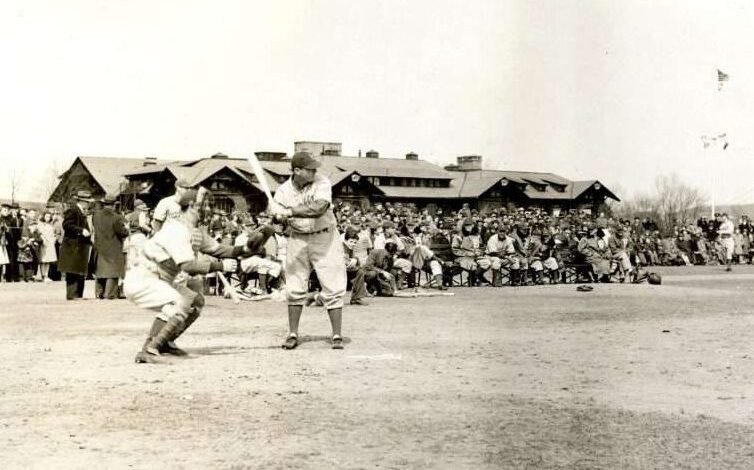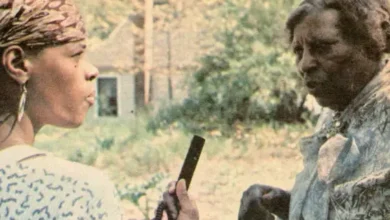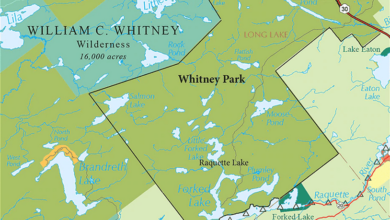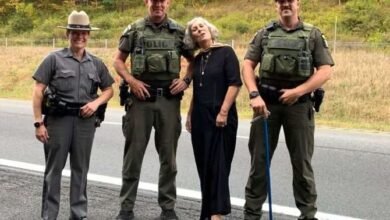Breaking Baseball’s Color Barrier at Bear Mountain State Park


 In 1997, Major League Baseball (MLB) took the unprecedented step of retiring Jackie Robinson’s number 42 across the entire league – except for one day a year. On every April 15, the number is everywhere as all MLB teams take the field and all players and managers wear 42 to commemorate the day that the “color barrier” was broken and remember the extraordinary man who broke it.
In 1997, Major League Baseball (MLB) took the unprecedented step of retiring Jackie Robinson’s number 42 across the entire league – except for one day a year. On every April 15, the number is everywhere as all MLB teams take the field and all players and managers wear 42 to commemorate the day that the “color barrier” was broken and remember the extraordinary man who broke it.
Since the end of the 1800s, Black players had been barred from Major League Baseball and its antecedents through an unspoken but stringently enforced agreement. Several unsuccessful attempts had been made to integrate the league, but by the 1940s momentum started to swing.
Black and left-wing press and political leaders were pressuring the league. A new commissioner supported integration. And Brooklyn Dodgers owner Branch Rickey (1881-1965) was determined to make it happen for a mix of reasons.
Rickey, a devout Methodist, believed that racial discrimination was morally wrong and was both haunted and galvanized by ugly incidents he’d witnessed. As a highly competitive businessman, Rickey was eager to inject top talent from the Negro Leagues and gain a winning edge. He also recognized that the first MLB team to integrate would win the loyalty of millions of Black fans.

 Evidence has emerged in the last 25 years that Rickey originally planned to sign several Black athletes at once. But circumstances brought his plan to bear on one man alone: Jackie Robinson (1919-1972), a four-sport athlete in high school and at UCLA, and an Army veteran accustomed to working and playing sports in a predominately white environment.
Evidence has emerged in the last 25 years that Rickey originally planned to sign several Black athletes at once. But circumstances brought his plan to bear on one man alone: Jackie Robinson (1919-1972), a four-sport athlete in high school and at UCLA, and an Army veteran accustomed to working and playing sports in a predominately white environment.
In 1945, Robinson traveled to Bear Mountain State Park to meet with Rickey. Due to wartime travel restrictions, the Dodgers were practicing at the park, as were other New York sports teams like the Knicks and the New York Giants football club (at the time, there was also a New York Giants baseball team).
Little is known about the details of this meeting that would transform baseball and advance racial equality in the United States. But he left Bear Mountain having inked a minor-league contract that had him and his wife Rachel Montreal-bound.
In a preview of the history-making events that would come 362 days later, he took the field for the Montreal Royals on April 18, 1946, to a sold-out crowd dishing out both racist abuse and excited cheers for his athleticism. The Royals’ 1946 season still ranks in the Top 100 for minor-league teams, and the next year, Robinson made his major-league debut with the Brooklyn Dodgers.
Rickey was right about Robinson’s appeal to Black fans. The Brooklyn Dodgers became Black America’s team, setting attendance records in nearly every National League city. A “Jackie Robinson Special” train ran from Norfolk, Virginia to Cincinnati when the team faced off against the Reds. Fans sported pins with Robinson’s image and the motto “I’m Rooting For Robinson.” Other teams began signing Black players.

 But there was only one Jackie Robinson. His mental fortitude in the face of death threats, jeers, and all manner of dehumanizing treatment would be incredible enough, but he was also one of the best players in baseball history. His style of base running, with its emphasis on stealing bases, revolutionized gameplay.
But there was only one Jackie Robinson. His mental fortitude in the face of death threats, jeers, and all manner of dehumanizing treatment would be incredible enough, but he was also one of the best players in baseball history. His style of base running, with its emphasis on stealing bases, revolutionized gameplay.
He won the 1947 Rookie of the Year Award (today known as the Jackie Robinson Award), 1949 National League MVP, and was an All-Star for six consecutive years from 1949 to 1954. In 1955, he won the World Series. Five years after his retirement, he was a first-ballot Hall of Famer.
Both baseball and America had – and have – a long way to go towards true equality for Black Americans and for all people who live in this country. But the signing of Jackie Robinson was a milestone in this long struggle, and it all started at Bear Mountain State Park.
Read more about baseball history in New York State.
A version of this essay by Kate Jenkins, State Parks Digital Content Specialist in the Saratoga-Capital State Parks Regional Office, first appeared in the New York State Parks and Historic Sites Blog.
Illustrations, from above: Fans watch the Brooklyn Dodgers play baseball at Bear Mountain State Park during World War Two; Photo said to be Jackie Robinson in military uniform on the day he signed his minor league baseball contract as Bear Mountain State Park; and Brooklyn Dodgers Manager Leo DuRocher, center, with Parks officials, including Robert Moses, at Bear Mountain State Park. DuRocher was a vocal advocate for integrated baseball.
Source link




